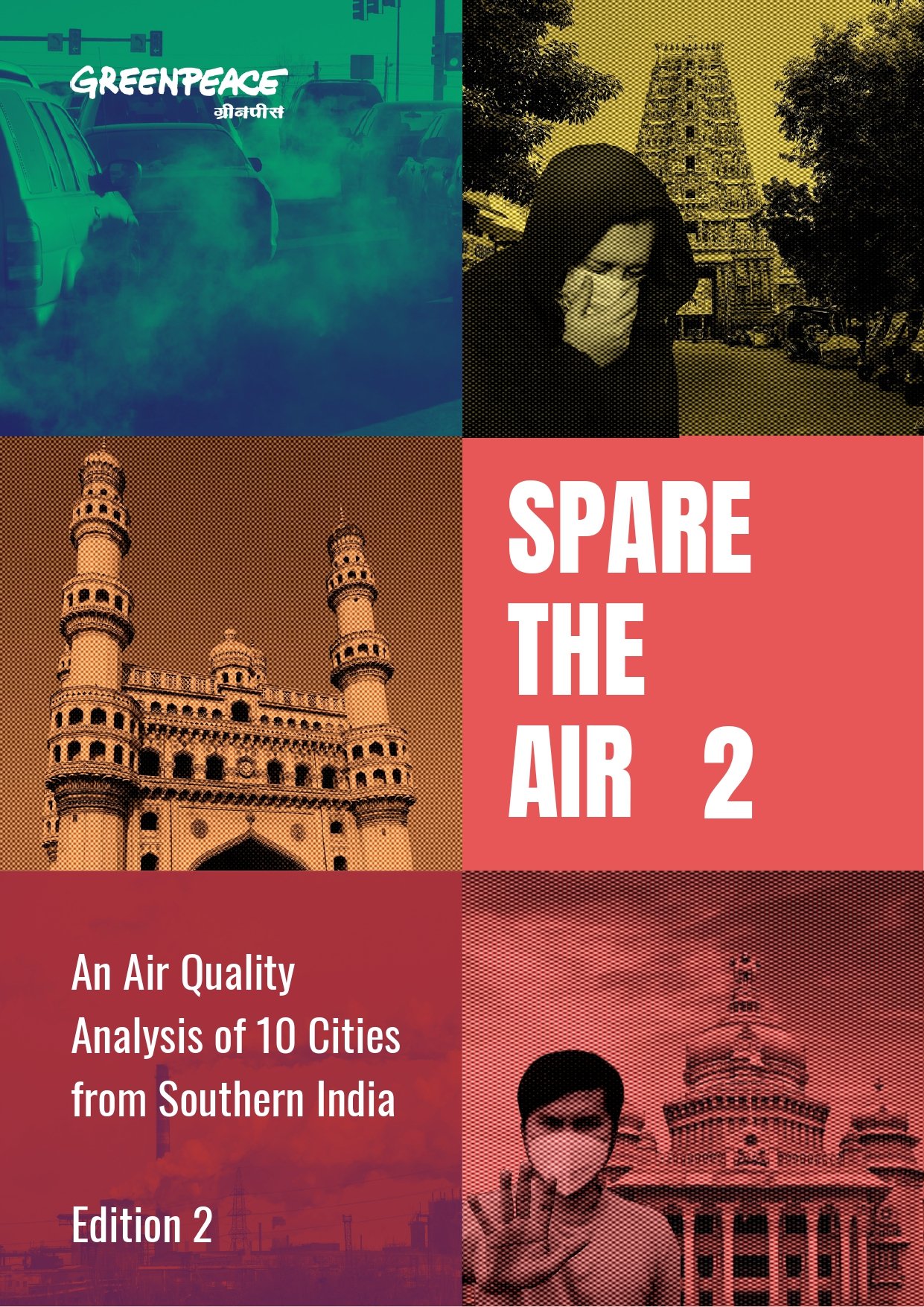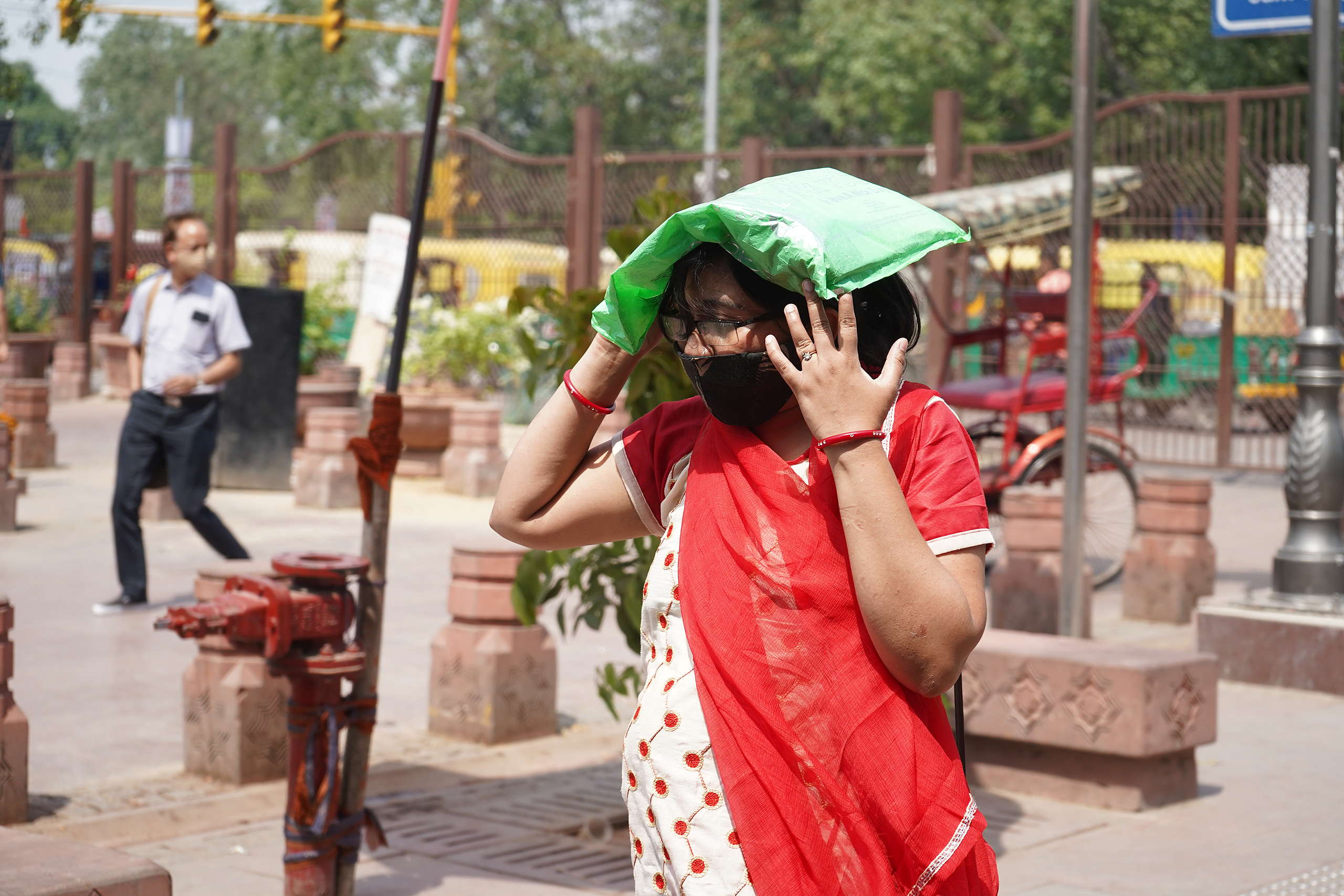(According to Greenpeace’s analysis, in Hyderabad and Bangalore, the NO2 concentration has reduced by more than half)
Bangalore, 27th May: A new analysis of CPCB data reveals a large scale reduction in air pollutant concentration during the lockdown period in major south Indian cities. Levels of two major air pollutants PM2.5 and NO2 have been reduced significantly in Chennai, Bangalore and Hyderabad. In this analysis, data from April 2020, has been compared with the April 2019 data.
In Chennai, the average concentration of PM2.5 has reduced by 55.56%, and the concentration of NO2 reduced by 23.86% in comparison to last year. Similarly, in Bangalore, the average concentration of PM2.5 has reduced by 51.57% and NO2 reduced by 64.02%. Whereas, in Hyderabad, the average concentration of PM2.5 reduced by 18.35% only and NO2 reduced by 63.99%.
According to Greenpeace’s analysis, in Hyderabad and Bangalore, the NO2 concentration has reduced by more than half. NO2 is the main source of nitrate aerosols, which form an important fraction of PM2.5. The major sources of anthropogenic emissions of NO2 are combustion processes such as power generation, vehicles, and industrial activities. Nitrogen dioxide has many harmful effects on the lungs.
Air pollution is a public health crisis as well as a threat to our economies. Every year, air pollution takes millions of lives, increases our risk of stroke, lung cancer, asthma, and hugely affects our economy. We don’t have to respond only in dramatic times like a cyclone or pandemic. Air pollution is like an ongoing crisis and we pay the price with life all the time and it needs to be so.
According to the ‘Toxic air: The Price of Fossil Fuels’ report, NO2 is linked to roughly 350,000 new cases of asthma in children each year with approximately 1,285,000 children in India living with asthma due to exposure of NO2 pollution from fossil fuels. It is also noteworthy that PM 2.5 is causing serious health risks like cardiovascular diseases, respiratory diseases, and lung cancer. ‘Toxic air: The Price of Fossil Fuels’ report revealed that air pollution from fossil fuel-related PM2.5 is attributed to an estimated 669,000 premature deaths each year in India.
Commenting on the situation, Climate Campaigner at Greenpeace India, Avinash Chanchal said, “Though we are seeing the reduction of air pollution across the cities because of temporary slowdown of economic activities and people today are able to see blue skies and breathe clean air. But we should not see it as a long term solution. Tackling one crisis can’t be done at the expense of another. People all over the world are suffering and facing severe hardships because of the COVID19 crisis.”
“It is high time that all non-attainment cities are included under the National Clean Air Program (NCAP) immediately and its strict implementation is ensured to address long-term air pollution problems. We can only use the COVID-19 outbreak as a lesson to mankind and once we pass the crisis, the country needs a coordinated and consistent action plan to address major sources of pollution that exist through the year,” he added.
Methodology note: the data includes all stations that reported real-time data.
For further media queries:
Rohin Kumar
Media Officer
[email protected]
9013971997
Avinash Chanchal
Climate Campaigner
[email protected]
8882153664


